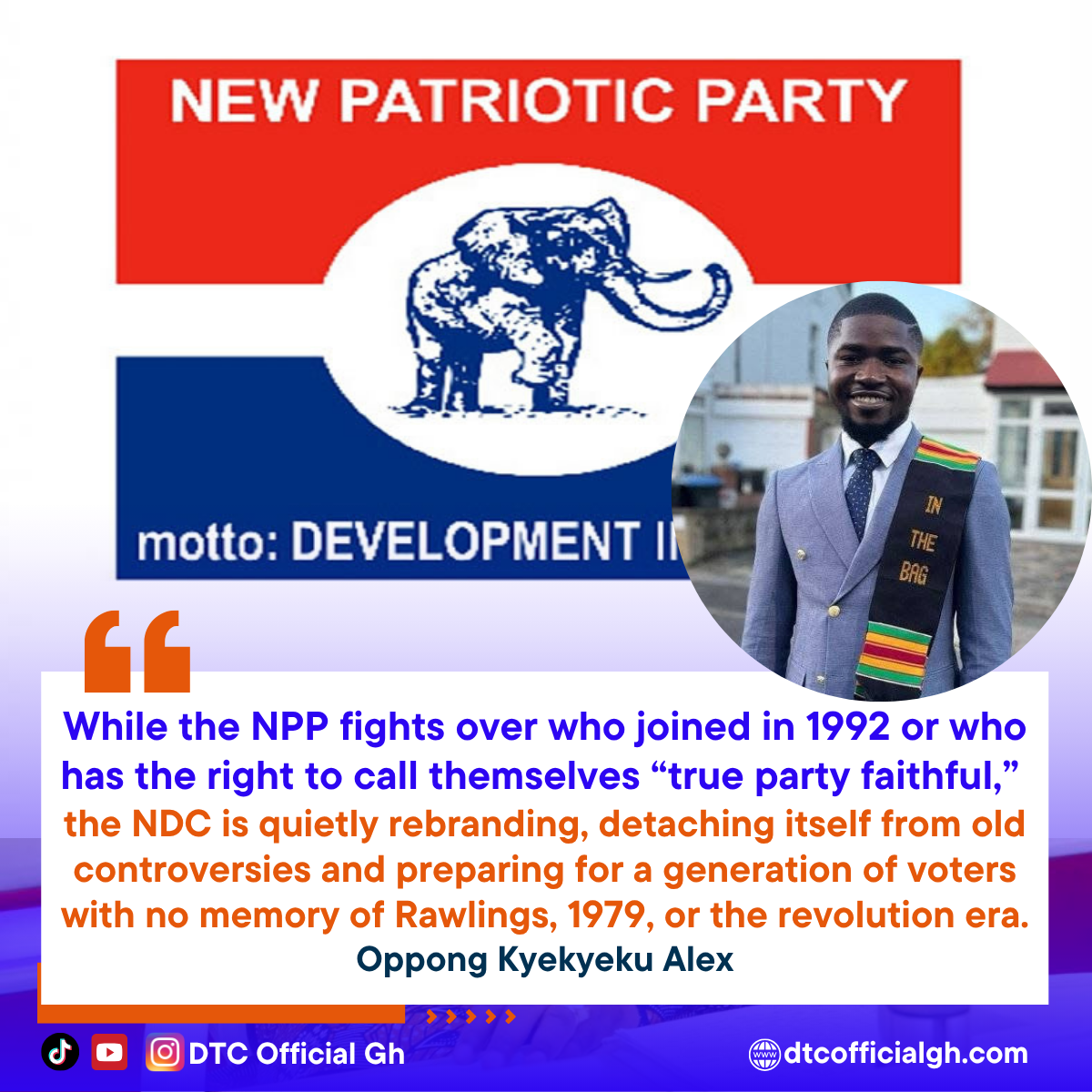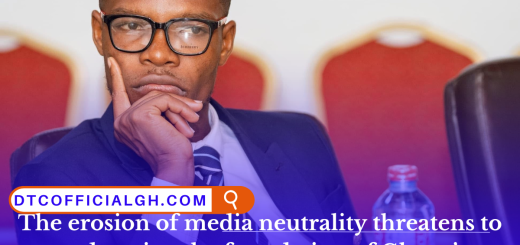A Party at the Crossroads: Why the NPP Must Wake Up to a New Political Reality

In a thought-provoking post that has since sparked wide conversation within Ghana’s political circles, Oppong Kyekyeku Alex delivers a blunt yet necessary critique of the New Patriotic Party (NPP), a party that only 11 months ago completed an eight-year tenure in government. His message is simple but piercing:
If the NPP does not wake up, reorganize, and reconnect to its foundational strengths, it risks losing not just elections but its very identity.

A Party That Once Prided Itself on Structure
Kyekyeku begins with a sobering observation, after eight years in power, the NPP appears to be struggling with basic structural coherence. The party, once marketed as an intellectual powerhouse, rooted in strategy, discipline, and organization, now seems uncertain of its own internal order.
“If after 11 months out of government the system looks broken,” he suggests, “perhaps it was poorly managed long before the loss of power.”
READ ALSO: The NPP at a Crossroads: Why Boakye Agyarko Kyerematen Must Lead the Party’s Renewal
The critique hits harder when he reminds readers of the NPP’s storied reputation: a party that attracted the brightest minds, the finest thinkers, and the boldest reformers. But if today the party struggles to draw in such calibre, can it still lay claim to its heritage of intellectualism?
Where Leadership and Planning Failed
Oppong does not mince words when reflecting on the previous NPP government. For him, their greatest struggle was not in policy ideas but in leadership and planning, particularly in communication.
He points out a striking contrast: the current government has strategically recruited journalists, communicators, and professionals who shape public narratives. Some, he argues, were positioned long before the elections, helping to tilt public perception.
In comparison, the NPP seemed to be pleading its case to referees who “already wore the jerseys of our opponents underneath.”
This, he insists, is not a coincidence, it is a strategy.
Something the NPP failed to deploy.
A Party Without a Clear Plan for the Future
Oppong raises deeper concerns:
- What is the NPP’s communication strategy?
- Where are the mentorship pipelines for TESCON members?
- Who is being groomed for future leadership?
- How many young talents have been placed in influential spaces to strengthen the party’s long-term vision?
- What is the plan for funding, mobilisation, and generational renewal?
His frustration is directed at what he calls “try and error leadership”, an approach he believes is sinking the party faster than its members realize.
READ ALSO: Aburi Botanical Gardens: A 135-Year-Old Treasure in Need of Renewal
While the NPP Looks Backward, the NDC Is Rebranding
One of Oppong Kyekyeku’s most powerful warnings concerns generational change.
While the NPP fights over who joined in 1992 or who has the right to call themselves “true party faithful,” the NDC is quietly rebranding, detaching itself from old controversies and preparing for a generation of voters with no memory of Rawlings, 1979, or the revolution era.
“The next election will be decided by voters with no emotional link to the past,” he cautions.
For these voters, performance, relevance, and vision, not old party battles, will determine their choices.
A Call to Wake Up
Oppong ends his reflection with a sharp admonition: “Let’s keep sleeping!”, a sarcastic nudge to a party he believes is unaware of the political danger approaching.
His message is clear:
The NPP cannot afford complacency.
It cannot afford internal trivialities.
And it certainly cannot afford a future built on nostalgia and luck.
Victories are engineered, not wished into existence.
If the NPP wants to reclaim its legacy and relevance, the time to wake up and rebuild is now.
For more insights and inspiring stories, kindly follow us on Twitter and WhatsApp.



